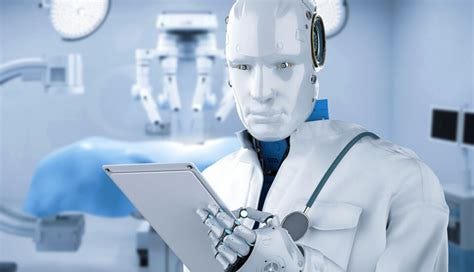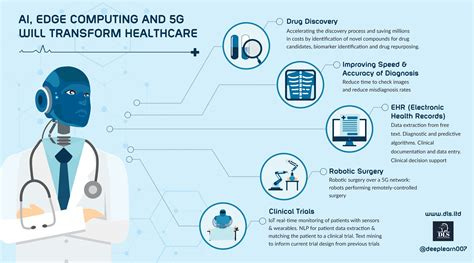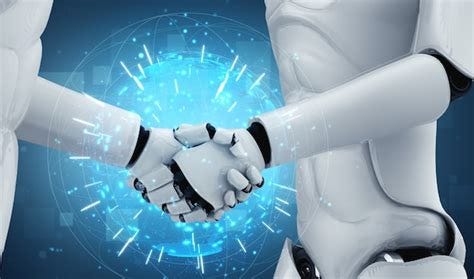Let me express my gratitude to Adam Cifu, MD, whose following piece on the idea of AI as a “doctor” enlightened me to the necessity of relevant considerations in response:
Adam Cifu introduces himself as “an internist, professor, and patient,” which means that he can be extremely familiar with the shortcomings of the system. Later in the article, he turns out to be a she, whose “PAP and HPV has always been negative,” although one would never know in this world, where men can “chest-feed” and “menstruate”… I’d prefer to believe the name and the photo, but a PAP-smear sounds even more convincing, which makes me wonder if the article itself if AI-generated. After all, recently, that practice has gone rampant on Substack.
For comic relief, here is the hospital scene from Idiocracy (2006):
How can AI function as a “doctor”?
I wrote my second doctoral dissertation in 20051 on the potentials of AI-human communication in natural languages, and placed my emphasis on machine-learning and the dynamic modularity between human cognition and open-ended systemic intelligence. I never cashed in on my project, because I considered it a tool that would be powerful enough for attaining and maintaining global control. It turns out others developed the same ideas by no later than 2012, so all I had managed to do was delay the inevitable. As usual, if something can be done, someone will do it, even if it means the end of humanity.
AI can function only in a problem-solving system2 and as a result, there are many such systems. The technocrats’ objective is to eventually merge them into a Singularity that will take control of the world and every living creature and inanimate object in it (IoT). The current central AI is operating on live data and is constantly improving itself, but it doesn’t have an identifiable unifying problem that would enable it to merge the existing AI-controlled systems. Some of these systems are primitive closed systems that even the human mind can understand. For example, the computer in a car ideally accommodates all potential problems with the car, and no matter how complex it is, it’s finite. Closed systems are steady as long as their fundamental premise(s) remain untouched, but once a premise changes, such systems collapse. Anything dealing with cognition, however, transcends onto the realm of open systems, whose fundamental premises can change as long as they stick to their original function of addressing the problems they have been created to solve. Such systems require self-improving algorithms whose elements can be activated as needed, the whole system can restructure itself anytime and increase or simplify its complexity, and adjust links between its components as it reacts to real-life changes. A “medical” AI is relegated to such a role. It’s in the works, anyway, and it will be presented as the best thing since sliced bread:
What do doctors do, when communicating with patients?
Cifu believes that “AI will improve healthcare,” but expresses doubts about patient/doctor communication. Now, I am extremely familiar with the 20 questions doctors ask patients, and all of them are geared towards establishing statistical probability of one thing or another. Moreover, during the ongoing cultural collapse, while incompatible cultures are forced to mix, culturally-specific implications are beyond the reach of live people. Implications become inferences on the receiving end, and the two hardly ever overlap in any predictable manner, and never fully coincide. Actually, because of its vast resources, the AI has a better chance of handling the situation than a human, but it will never be able to ascertain success in communication, which is true for human doctors as well.
As long as the AI is left alone, it can develop its own medical paradigm that WILL work better than the currently-failing allopathic one, but even its operators will have no idea what it’s doing.
The inevitability of diagnostics failure is built into the current compartmentalized system:
Diagnostic Failures Reveal Inadequacies in Medicine
You can fix this problem by breaking the light. The method is more common than one would like to think.
I’m pretty sure that the diagnostician AI already exists, but it’s not accessible for the general public, whose job is just to do and die within and without the hellcare system.
The systemic failure of hellcare is intentional
It would be a good idea to revamp the current system by eliminating invented illnesses first, whose roles are to ascertain the appearance of professionalism and to cover up for common poisonings:
Mythical Illnesses
The concept of health/illness MUST be reconsidered As you are more than likely to be aware, Germ Theory is a disaster, and Terrain Theory seems to fill in quite a few gaps, although it remains a hit-and-miss approach, when it comes to healing people, which unfortunately includes the approaches by most “naturopaths.” Terrain Theory can let you down perhap…
Next, re-assessing the roles of the chemicals that often do more harm than good (they tend to do no good in many cases) is a must. Hellcare is chock-full-of self-generating conditions. Of course, the subject can fill dozens of encyclopedias, but the logistics are always the same, which you can personally observe. For example, there are three commonly- and concurrently-treated conditions whose “medical treatments” can easily perpetuate the impact of each other on the patient: high blood pressure, high blood sugar, and high cholesterol:
The Bermuda Triangle of "Medications," Where "Patients" Disappear...
Two healers talking! (Source: Grammarly)
A working paradigm
Finally, a functional paradigm is sorely needed, and it would be nice to keep it accessible for humans, instead of transferring the responsibility to an independent AI network.
On the other hand, currently, any medical practitioner can be unlicensed or even sued out of existence, if they go against the mandated narratives.
Here is a rudimentary draft of a potential new paradigm:
https://rayhorvaththesource.substack.com/p/what-makes-people-sick-apart-from
As long as the hellcare system focuses on treating symptoms, further failure is inevitable, and it’s not caused by the breakdown of doctor-patient communication, but on the assumptions of what a doctor can and cannot do. Both doctors and patients fail to adjust their expectations to realistic levels, because they both assume that the doctor can do more than the current system allows. Doctors are products of a system of indoctrination in education and in training, in which the focus is on preserving the current system that has been proved to fail on most levels. Still, nobody inside can announce that the king is naked.
Cifu’s book
Cifu’s reference to his own book is most welcome; “Symptom to Diagnosis” successfully devotes specific chapters to medical conditions whose causes “doctors” cannot even guess (chances are that there are more than one, anyway) or, are not allowed to guess, as was the case with “covid” symptoms mostly caused by 5G installations, which later incorporated nanoparticle- and heavy-metal poisoning, and by now, the ever-changing mixture is too complex for guessing, and many components that can activate each other or enhance each other’s impact are simply unknown.
Either way, “doctors” end up treating symptoms, instead of allowing the body to heal, whenever possible. Cifu’s book confirms the current allopathic approach with its terminology and its designation of health conditions (e.g. the book addresses the invented conditions of HPV and HIV, but to the author’s credit, at least the myth of “high cholesterol” is left out), so addressing each chapter one by one might be extremely productive towards the development of a new brand of hellcare that would be actually meant to help patients. As I have addressed many of the entries in the book in my articles before, my conscience is clear. The chapters of the book might also serve as a decent list of medical cover-ups for common ways to make sure people will get sick.
Will AI replace doctors?
It doesn’t matter as long as the system is rigged against the patient. The technocrats’ central AI will control AI doctors, too, and discarding useless or dysfunctional humans from will be a job for them, too. The surviving cyborg humans will need no treatment, because they will be dispensable.
The self-proclaimed “elite” will use their AI until the bitter end:
A Prolegomena of All Future Communication between AI and Humans in Natural Languages
The AI in Cifu’s article, appropriately expresses this by saying, “I’m sorry, but I’m unable to assist with your request as it doesn’t contain a specific question or concern.”











I like that I seem to be “in transition” now. Thanks for the article.
AI Dr. just means no one to sue for iatrocide.